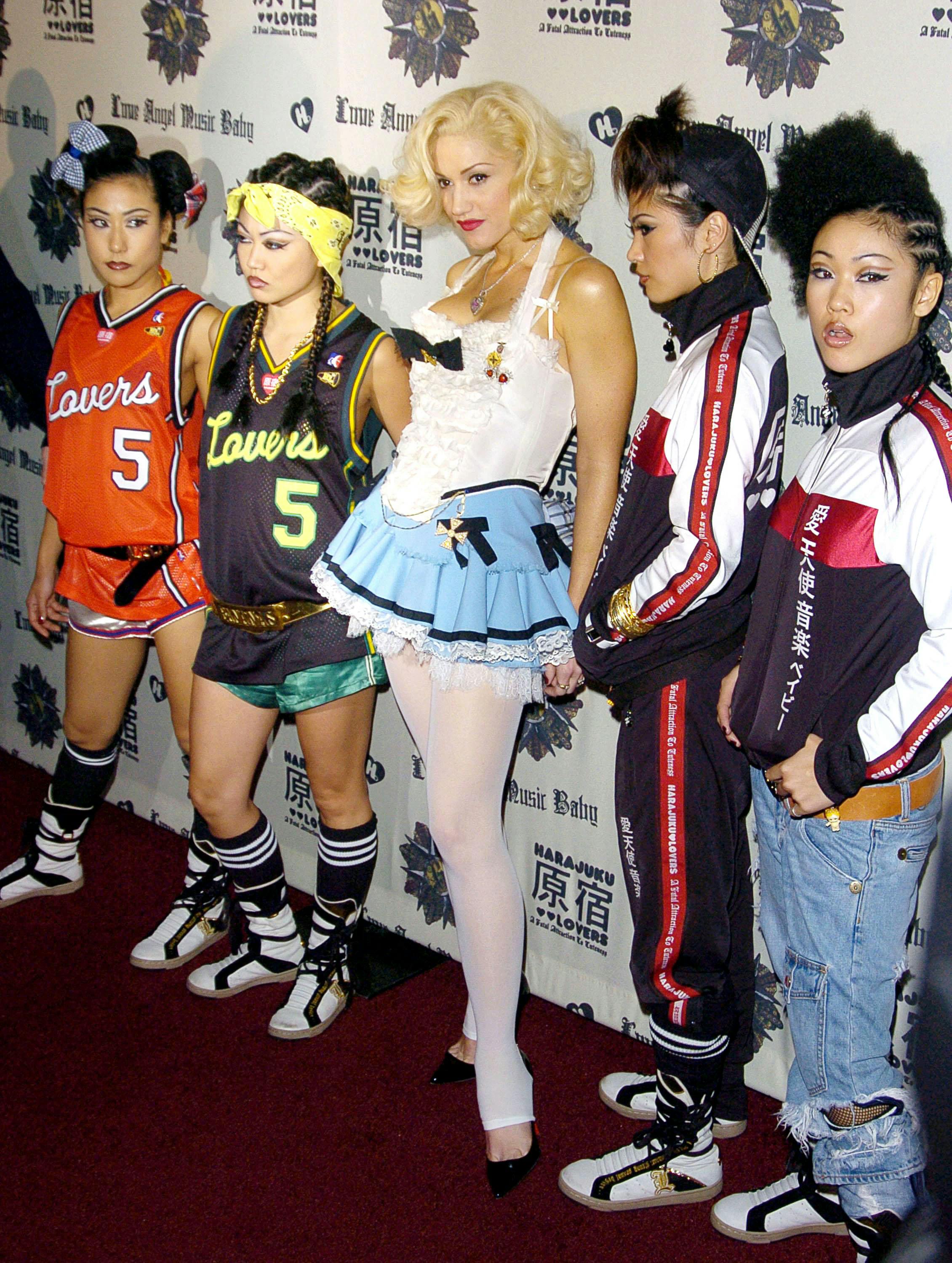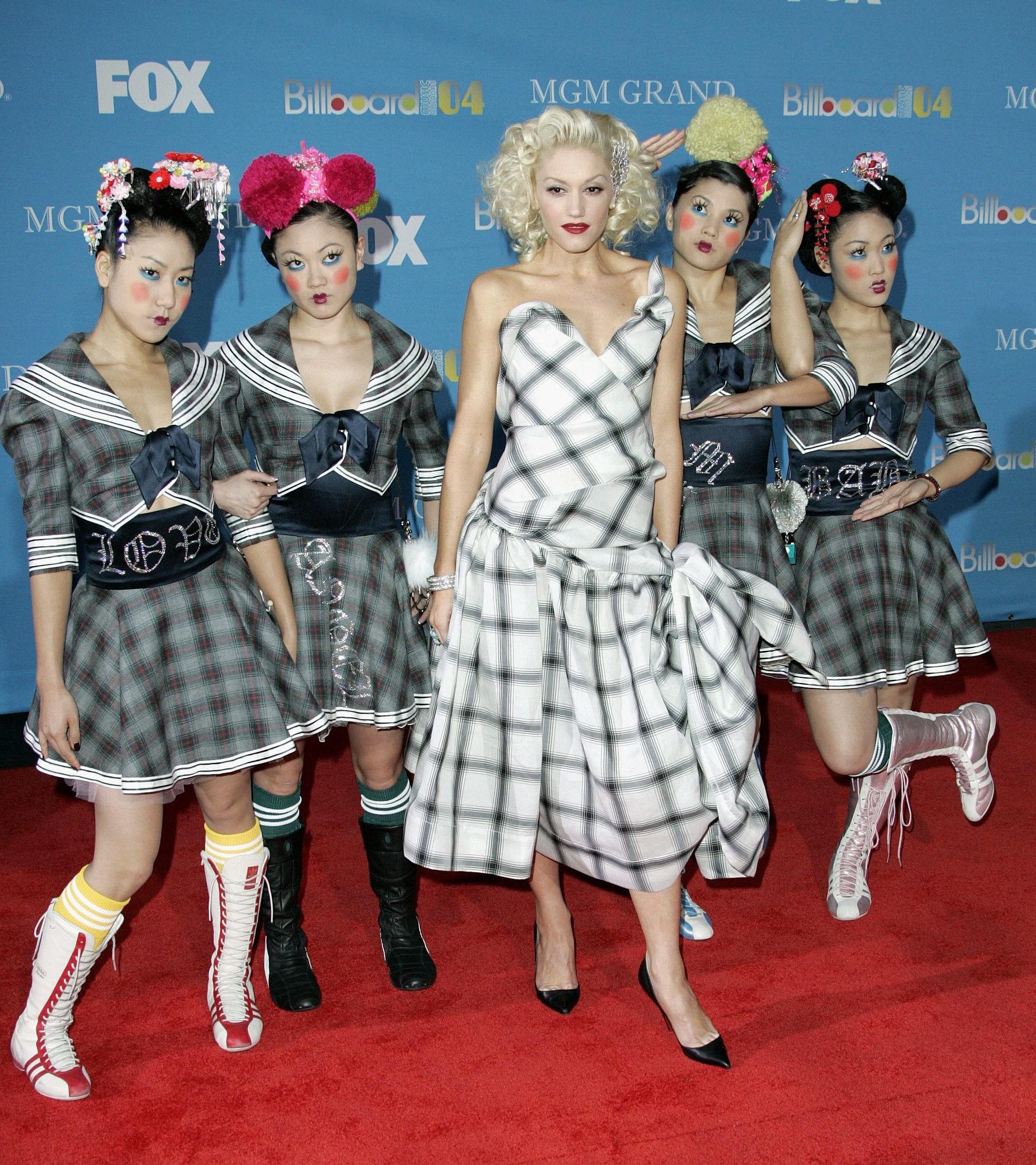Gwen Stefani Denies Cultural Appropriation Of Japanese Culture
In a recent interview, singer Gwen Stefani defended her love for and integration of Japanese culture into her career — what some have called cultural appropriation.

Gwen Stefani loves Japanese culture and has since she was a little girl. Even though she grew up in Anaheim, CA, her father did market research for Yamaha in the 1970s, which included business trips to Japan. He would bring home Sanrio toys and stories about Harajuku, a district of Tokyo, where “teenagers were dressing like Elvis” and were “taking all these American things and making them Japanese." Stefani was enthralled: “He would be telling me these things my whole life, like my whole life. I had a deep fascination."
So when Stefani got to go to Japan on her 1996 No Doubt tour, it was a very special occasion for her. "I just was inspired," she recalls. "It's a world away. And at that time it was even further, because you couldn't see it on the internet. I don't think a younger generation can even imagine what it's like to not have access to the world."
After a positive experience in Japan, being able to return became a huge motivator for Stefani. She thought that if she could “just write more hits, she'd get to tour there again, see the street style, visit the vintage stores.”
Stefani says, "If you read the actual lyrics [in 'What You Waiting For?'], it talks about being a fan of Japan and how if I do good, I get to go back there.”
After Stefani moved into her solo career, she decided to incorporate more Japanese culture into her career and her shows. She says, "I never got to have dancers with No Doubt. I never got to change costumes. I never got to do all of those fun girl things that I always love to do. So I had this idea that I would have a posse of girls — because I never got to hang with girls — and they would be Japanese, Harajuku girls, because those are the girls that I love. Those are my homies. That's where I would be if I had my dream come true, I could go live there and I could go hang out in Harajuku."
For Stefani’s next two album cycles, dancers Maya Chino, Jennifer Kita, Rino Nakasone, and Mayuko Kitayama accompanied Stefani on tour, danced in her shows and music videos, and attended awards shows.

Back in 2005, comedian Margaret Cho criticized Stefani’s “Harajuku girls” as derogatory. "I want to like them, and I want to think they are great, but I am not sure if I can," Cho wrote on her website. "I mean, racial stereotypes are really cute sometimes, and I don’t want to bum everyone out by pointing out the minstrel show."
Cho added, "To me, a Japanese schoolgirl uniform is kind of like blackface." Accusations of cultural appropriation haven’t died down since.

Stefani disagrees. "If we didn't buy and sell and trade our cultures in, we wouldn't have so much beauty, you know?" she says. "We learn from each other, we share from each other, we grow from each other. And all these rules are just dividing us more and more."
The 51-year-old singer adds, "I think that we grew up in a time where we didn't have so many rules. We didn't have to follow a narrative that was being edited for us through social media, we just had so much more freedom."